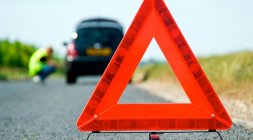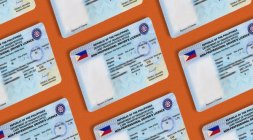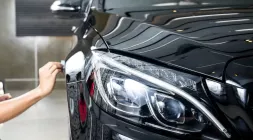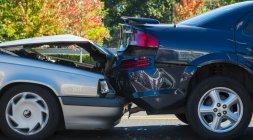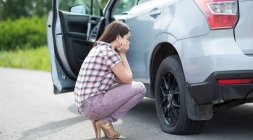Safety Driving Tips to be Safe from the Coronavirus
Even car owners and drivers are susceptible to the virus. So how does one keep safe from the virus while running errands and picking up groceries?
We’ve seen numerous movies that revolve around pandemics. Although it could be hard to believe, who knew we would be experiencing one now? A lot of establishments are closed while people are strictly advised to stay at home.
But even with Luzon under enhanced community quarantine, there is still some day to day activities that can’t be stopped. For example, people still need to go outside to get their supplies. But even car owners and drivers are susceptible to the virus. So how does one keep safe from the virus while running errands and picking up groceries?
This article from Philcarnews.com will answer all your questions.
How the Coronavirus is Transmitted
The COVID-19 virus is believed to be transmitted by means of droplets. That means that if a person with the virus coughs or sneezes, he releases these virus-laden droplets. These droplets can then enter a healthy individual’s eyes, nose or mouth. If the droplets land on an object, the virus may latch on there for some time. If a healthy person holds onto that object then puts his hand to his mouth, nose, and eyes, he may get infected.
The common symptoms that a COVID-19 infected person shows are coughing and fever. Though some patients may also report tiredness.
More serious cases can bring about difficulty in breathing. However, not tall COVID-19 infected persons can exhibit these symptoms. Some carriers of the virus may be asymptomatic. That means they may not display any of these symptoms and still be infected.

The common symptoms that a COVID-19 infected person shows are coughing and fever
How Can You Drive Safely and Avoid Getting Infected?
As of this writing, there are 1,441,128 confirmed cases of COVID-19 infected patients. 3,870 of these patients are from the Philippines where only 96 have recovered.
Sadly, 182 patients have died. You can help stop this number from rising by just staying at home. But if going out can’t be helped, here are a few tips you can follow. This will minimize the chances of you and your loved ones getting infected with the virus.
1. Be careful about touching surfaces
The more surfaces you touch, the more likely you are to catch the virus. In fact, most of the surfaces that we touch outside have more germs and viruses than toilet seats.
That includes door handles, money and other objects that other people touch. If you really must go out and have a possible encounter with the virus, at least protect yourself. Use gloves when going out to buy medicine or picking up groceries.
You can use latex disposable gloves to prevent the germs from latching onto your hands. But make sure you throw them into the correct garbage bin to avoid spreading the possible viruses. Also, make sure you wash your hands or at least sanitize once you get home.

The more surfaces you touch, the more likely you are to catch the virus.
2. Limit your trips
Plan ahead and avoid making unnecessary trips. In fact, just avoid driving around the way you originally used to. You need to limit contact with the world.
So as much as possible, do not prolong trips more than necessary. List down what you need while you’re still at home. You can do this on your phone or on an actual notepad.
Write down the groceries and where you first need to go. Buy supplies in advance. If you used to buy groceries enough for one day, then buy for the whole week in advance if your budget allows it.
You can also take advantage of online shops or food delivery services. This will not only lessen your chance of exposure to the outside environment. This will also make your tasks easier since the supplies will be delivered at your door.

Plan ahead and avoid making unnecessary trips
3. Make use of contactless payment methods
If you’ve heard of GCash, Paymaya and the likes, now’s the time to use it for your benefit. Another way to avoid catching the COVID-19 virus is by inhibiting physical contact.
People who have the virus but are asymptomatic may still be walking around thinking they are healthy. If you make physical contact with an asymptomatic COVID-19 patient, you will most likely have the virus. Making use of contactless payment methods mean that you won’t hand and be handed out money when you pay for the things you buy. This is also a way faster method of paying for your transactions.

4. Always ready a hand sanitizer
If you have more than one place to go when you go out, ready a hand sanitizer in your vehicle. Every time you come back to your vehicle, sanitize your hands first before touching anything else. This will lessen the chance of you spreading the possible viruses that you picked up from where you came from.
If you are riding with another person, make sure they sanitize their hands too. Also, it’s best that you have them seated at the back. They should also have their own disposable mask.
If not, a washable version should work fine as well. This will lessen the chance of contracting the virus and spreading them to the people in your home. Once you get home, make sure you still wash your hands with germicidal soap and water. Do this before touching anything else in your home.
Note: If you are a medical practitioner or a frontline health worker, make sure you remove your clothing before entering your home. Always have a ready basin of water with laundry detergent outside your home. Then, remove the clothes you wore from outside and leave them in the detergent and water mixture.

Every time you come back to your vehicle, sanitize your hands first before touching anything else
5. Disinfect your car after getting home
Wipe down every part of your vehicle that is frequently touched, Use disinfecting wipes or those with alcohol as an ingredient. If you do more than one trip in a day, disinfect your car after every ride home.
If you have had other passengers in your car that could have had the virus, you also need to disinfect the areas they touched. Common germ-populated areas are the interior door handles, the gear shift, and the seatbelts. You also need to clean the cup holders, the steering wheel and the dashboard.
For more surving tips during this hard time, visit our tips and advice section.
RECENT ARTICLES

